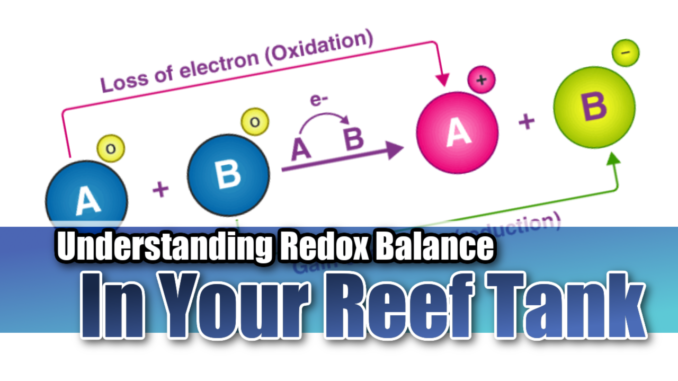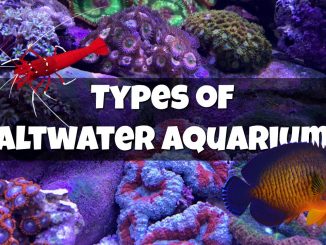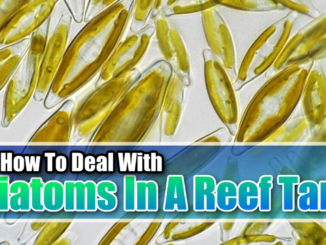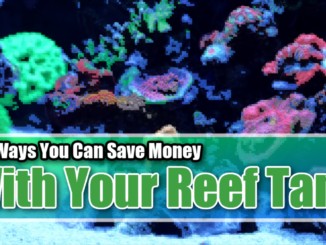
Redox balance, also known as oxidation-reduction balance, refers to the equilibrium between oxidizing and reducing chemical reactions within a system. In simpler terms, it’s the balance between substances that gain or lose electrons during chemical reactions. Redox reactions are fundamental to many processes in nature, including those within a reef tank or aquatic environment.
In the context of a reef tank, redox balance plays a crucial role in maintaining the health and well-being of the aquatic ecosystem. Here’s a bit more detail on what redox balance means for your reef tank:
- Oxidation and Reduction: Oxidation involves the loss of electrons by a substance, while reduction involves the gain of electrons. These two processes are interconnected and occur simultaneously in various chemical reactions.
- Importance in Reef Tanks: In a reef tank, redox balance is essential for several reasons. It influences water quality, nutrient cycling, and the overall health of the tank’s inhabitants. Proper redox balance contributes to a stable and thriving aquatic environment.
- Oxygen and Oxygenated Compounds: In reef tanks, oxygen is a critical component of redox reactions. Oxygen is vital for the respiration of fish, corals, and other organisms. Oxygenated compounds contribute to the tank’s overall redox potential.
- Preventing Oxidative Stress: Imbalanced redox conditions can lead to oxidative stress, a situation where there’s an excess of harmful reactive oxygen species (ROS). This can damage cells, disrupt biological processes, and harm tank inhabitants.
- Beneficial Bacteria: Redox balance also affects the activity of beneficial bacteria in the tank. These bacteria contribute to the breakdown of waste and the maintenance of water quality. An optimal redox balance supports their growth and effectiveness.
- Electron Transfer: Redox balance involves the transfer of electrons between different substances. This transfer affects the availability of electrons for various chemical reactions, including those that impact water chemistry and biological processes.
- Nutrient Cycling: Proper redox balance influences the cycling of nutrients like nitrogen and phosphorus in the tank. It can help prevent the accumulation of harmful compounds and support the growth of desirable organisms like corals.
- Stability and Resilience: Maintaining a balanced redox environment enhances the stability and resilience of the tank. It contributes to the overall health of the inhabitants, their immune responses, and their ability to handle environmental changes.
How Does Redox Balance and ORP Work?
Imagine your reef tank as a delicate ecosystem, with a variety of inhabitants living together in a complex web of interactions. Just like how you monitor your own health by checking your temperature, heart rate, and other vital signs, reefkeepers monitor specific reef tank parameters to ensure their tank’s well-being.
One of these parameters is ORP, and it’s like a window into the balance of chemical reactions happening in the water.
Here’s how monitoring ORP ties into assessing the redox balance and overall health of your reef tank:
- Understanding Redox Balance: Redox balance, which stands for oxidation-reduction balance, involves the equilibrium between substances that gain or lose electrons during chemical reactions. In your reef tank, these reactions influence the availability of electrons, impacting the overall health of the water and its inhabitants.
- Stable and Healthy Tank: Think of a balanced reef tank as a symphony playing harmoniously. Each organism has its role, and the chemical reactions occurring within the water should be in harmony as well. A well-maintained redox environment means that the tank’s inhabitants and processes are functioning optimally.
- ORP as an Indicator: ORP is a quantitative measurement that reflects the electron transfer capacity of the water. When you measure ORP, you’re essentially assessing whether the water has a tendency to accept or donate electrons. A stable and healthy tank often exhibits consistent ORP readings over time.
- Stable ORP Readings: Monitoring ORP allows you to track changes in the tank’s redox environment. If the ORP readings remain stable, it indicates that the balance between oxidizing and reducing processes is well-maintained. Stability in ORP suggests that the tank is in a state of equilibrium, much like a balanced seesaw.
- Early Detection of Issues: Drastic fluctuations in ORP readings can be a sign of potential problems. For instance, a sudden drop in ORP might indicate an influx of organic matter or an increase in reducing conditions, both of which could affect water quality and the health of the inhabitants.
- Cues for Adjustments: Monitoring ORP can also guide you in making adjustments to your tank’s maintenance routines. If ORP starts consistently trending towards the high end of the range, it might prompt you to examine factors such as water flow, nutrient levels, or filtration methods.
- Balancing Act: Just like maintaining a healthy diet and exercise routine keeps your body balanced, monitoring ORP helps you maintain a balanced aquatic environment. The goal is to create conditions where both oxidation and reduction processes occur naturally, supporting the vitality of the tank’s inhabitants.
Monitoring ORP is like having a detective who observes the chemical interactions happening in your reef tank. By analyzing ORP readings, you gain insights into the health of your tank’s redox balance. A stable and well-maintained redox environment contributes to the overall success of your reefkeeping endeavor, ensuring that your underwater ecosystem thrives in a state of equilibrium and harmony.
In essence, redox balance is about maintaining a harmonious equilibrium of chemical reactions within your reef tank. It’s like balancing the scales of oxidation and reduction to ensure a healthy and thriving marine environment.
Monitoring and managing redox balance is a part of effective reef tank management, contributing to the success of your underwater ecosystem.
Are you a Maine based hobbyist? Our retail store Corals Unlimited is maine aquarium store located in Topsham, Maine.




